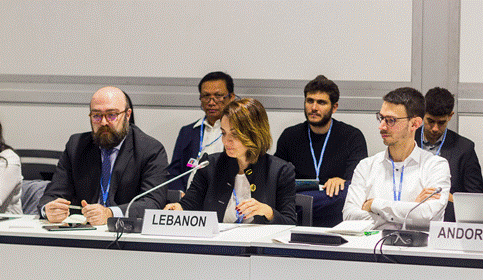
Lebanon is one of the few developing countries to submit its second Biennial Update Report (BURII), and has consequently undergone the International Consultation and Analysis (ICA) where a team of experts review the climate information’s transparency and completeness. Lebanon sees great value in this process as it helps identify priority areas for improvement.
During the 24th Conference of Parties (COP24), Lebanon conducted its second Facilitative Sharing of Views (FSV) where the main findings of the BURII were presented, and questions were asked by other Parties on process and challenges. The main highlights of the Q and A session were the acknowledgement of the realized progress from BURI to BURII, and the best practices that Lebanon was able to implement in a short two-year period.
These best practices include:
- Creating win-win situations with data providers in order to establish sustainable institutional arrangements for inventory and mitigation information;
- Linking the international reporting with national work in order to enable the BURs to inform decision-making;
- Establishing the GHG inventory system called the Management and Information System for Climate Action (MISCA);
- Having external reviewers for the inventory in order to enhance quality assurance.
Lebanon also highlighted that the improvements in reporting were reinforced by the EU-ClimaSouth project when it conducted the transparency of support analysis and the MISCA platform, as well as by GIZ for providing technical assistance on the shift to 2006 guidelines.
The ICA and FSV processes have enabled Lebanon to identify its capacity-building needs, and consequently focus its support needs in the upcoming Capacity-Building Initiative for Transparency (CBIT) project. The project will allow Lebanon to establish a national transparency framework to enhance implementation and abide by the transparency provisions of the Paris Agreement. The specific outcomes to implement this objective aim at establishing a national transparency framework in line with national priorities, enabling national institutions to implement transparency-related activities, improving capacities to track emissions and action and enhancing South-South cooperation. The CBIT activities will kick-in to start implementing the Paris Rulebook adopted at COP24.
For watch the FSV session at COP24, click here.